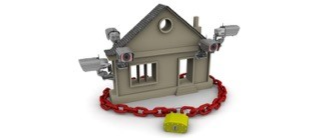News
Tax Talk Newsletter June / July 16

New tax rules coming
- From 1 April 2017 there are going to be a number of significant tax changes. Proposals include the following:
Use of Money Interest (UOMI)
- UOMI is a charge on higher incomes for short paid tax.
- Currently, if the tax on your personal income for the year is less than $50,000, after deducting all other taxes paid as you go, you are not liable for UOMI. This threshold is to be increased to $60,000, which is equivalent to getting $209,333, assuming no tax has been deducted from the income.
- Companies and trusts are caught for UOMI if their tax liability is more than $2,500 tax. This threshold is to be lifted to $60,000. Companies will then be able to earn $214,285 before UOMI will apply and trusts $181815, assuming no tax deductions at source.
- UOMI will no longer be charged on the first and second instalments of provisional tax, so long as the tax is paid based on the standard calculation method.
- UOMI will still apply to the third provisional tax payment.
PAYE for the self-employed - AIM
Businesses having sales of less than $5m are to be allowed to use their accounting software to calculate their approximate income (and hence tax) when they prepare their GST returns. IRD calls this the Accounting Income Method (AIM). 1 and 2 monthly GST payers will be permitted to pay their income tax with their GST. The accounting software will automatically generate the reports needed for both income tax and GST. 6 monthly GST payers, using AIM, will have to pay tax 2-monthly. Returns will be filed electronically. This change is scheduled to start from 1 April 2018.
Withholding tax
- The withholding tax rates are often too high. It is proposed, subject to certain rules, to allow people to select their own withholding tax rate.
- The income of contractors hired out through labour hire firms, like those in the IT industry, will be subject to withholding tax deductions from their income.
Tax penalties
The present system for penalising late tax payments is too tough. The present system is to charge 1% for a day late, then 4% after four more working days and thereafter 1% per month. The 1% per month is to go.
Private use of motor vehicles
- The system of adjusting for private use of motor vehicles is to be overhauled for “close” (roughly this means family) companies.
- The 5000km limit for using mileage rates is to be increased, using a lower rate for mileage in excess of 5000km. IRD will set the rates, annually.
 PPS could save your bacon
PPS could save your bacon
If your business is a company, you’ve probably had to give a personal guarantee to your bank and maybe to some suppliers, too.
If your business runs into trouble, you’re going to have to find personal money to pay off those debts.
Often our clients are owed money by their companies from loans they have made and salaries they have not fully drawn out. These debts are treated as unsecured creditors when a company goes broke. The debt is added to the other debts owing and our client will only get his/her share of any cash left over.
You can be paid ahead of these other creditors by registering a Personal Property Security for the debt owing to you. Alternatively, you could let a supplier (to whom you are giving a personal guarantee) have a Personal Property Security. The Personal Property Security would be taken into account in any adjustment made between you and the supplier. Once the security is in place, it has to be renewed every five years. The registrar charges a small fee – about $20 – for renewal.
 Make a will to avoid heartache for your spouse
Make a will to avoid heartache for your spouse
Make a will when you get married. If you don’t, your spouse will probably live to regret your inaction.
When marrying for a second time, your first will automatically becomes void. You must make another.
Why all the fuss about making a will?
According to the website of communitylaw.org.nz if you don’t make a will an administrator will need to be appointed. The order of priority for distributions is the spouse or partner (usually of 3 years or more), takes all the personal chattels and gets $155,000 plus a third of the rest of the estate. The remaining two thirds is shared between the children.
We won’t go into details of what happens if there is a separation, no children, etc.
Writing a will is not a do-it-yourself job, unless you want to enrich a lawyer later on. If it is not correctly signed etc it could be invalid.
Anyone can become an executor and they can consult a lawyer for guidance where needed.
Keep customers informed
Have you ever stood in front of your microwave and told it to hurry up heating your meal?
It’s the same for customers. They don’t like waiting, so respond quickly to their enquiries and keep them in the picture
We were impressed with this letter:
“Dear xxx,
Thank you for your recent order of Pleated Blind products. Your Order Reference No. is: AAA. We really appreciate your business and we are pleased to provide the following update on your order.
Your order has been received and processed by our Christchurch factory and is now awaiting production. Once your order has been manufactured and ready for despatch to our branch, we will send you a further update. As soon as the branch has received your order they will contact you to arrange a suitable installation time.
If you have any further questions, please call customer services on BBB. Thank you again.
Kind regards,
Customer Services”
The little extras build your reputation. They are part of the quality of your products
Why a newsletter? 
Have you ever wondered who that plumber, lawyer etc was you dealt with 18 months ago? Next time you want a plumber, what do you instinctively do? You try to remember who you dealt with last time and if you have forgotten you look elsewhere.
That's one reason why you should send regular newsletters to your customers or clients.
Another is to encourage referrals from them and from other contacts. These include friends and suppliers. Compile as big a mailing list as you can.
The best way to ensure customers or clients read newsletters is to keep the articles short and to the point. Each article should have a benefit to the reader.
 Cloud programs help you keep up to date
Cloud programs help you keep up to date
Keeping up with technology has always been an issue for small businesses.
As a rule, it’s worth having the latest and the best you can realistically afford. This ensures you are at least level, and possibly ahead, of your opposition and your clients who expect you to be keeping up.
Nowadays it’s a bit easier to keep up because many programs are cloud-based. This means you don’t buy a program on a disk or download from the internet, but you “lease” it online.
Instead of paying a one-off price, you pay a monthly fee to use it. Microsoft Office, which costs about NZ$10 a month for use on one computer, is an example.
While it seems like you’ll be paying forever (which you will as long as you need the program), the big advantage is that you’ll get regular updates to the program. Essentially, you’ll never get left behind.
Another advantage is that you’ll never lose your work because it’s stored in the cloud (online). If your computer or laptop gets stolen, no problem. Your work can be retrieved. You’ll also get a reasonable amount of cloud storage so you can regularly back up your work, store your photos or other personal stuff.
The downside is you’ll keep paying when once you might have kept a program running for years without having to upgrade it. The overall cost would have been lower than the lease arrangement.
But you also have to consider the tax implications. Generally, you’re not buying an asset for which you claim depreciation over time. Usually, the lease payments can be claimed as an operating expense.
Keep in touch
It’s staggering how few people keep in touch with their former customers.
John needed some scaffolding and found a really obliging firm. He said to the business owner when he came to take the scaffolding away: “I’m going to need scaffolding again in a couple of years to paint my house. Please keep in touch.”
Pete, the scaffolder, replied: “You’ve got my card.”
In a couple of years is John going to remember the name of the firm or even remember he’s got a business card somewhere?
Taking into account the money involved in the next sale, how difficult is it for Pete to find a way to keep in touch?
A note in the diary (physical or digital) would help. Emailed newsletters would have worked perfectly.
Important: This is not advice. Clients should not act solely on the basis of the material contained in the Tax Talk Newsletter. Items herein are general comments only and do not constitute nor convey advice per se. Changes in legislation may occur quickly. We therefore recommend that our formal advice be sought before acting in any of the areas. The Tax Talk Newsletter is issued as a helpful guide to our clients and for their private information. Therefore it should be regarded as confidential and should not be made available to any person without our prior approval.




